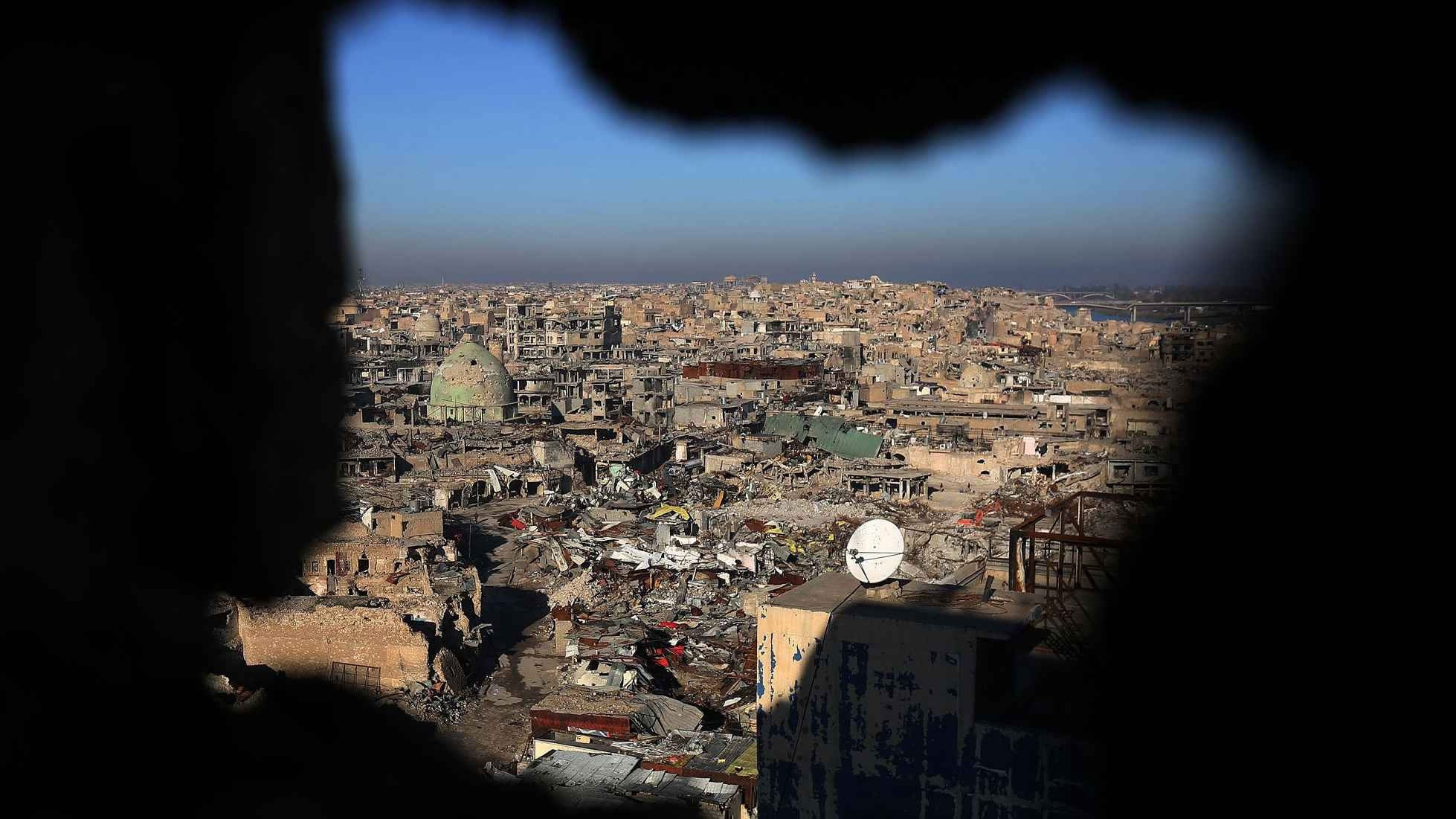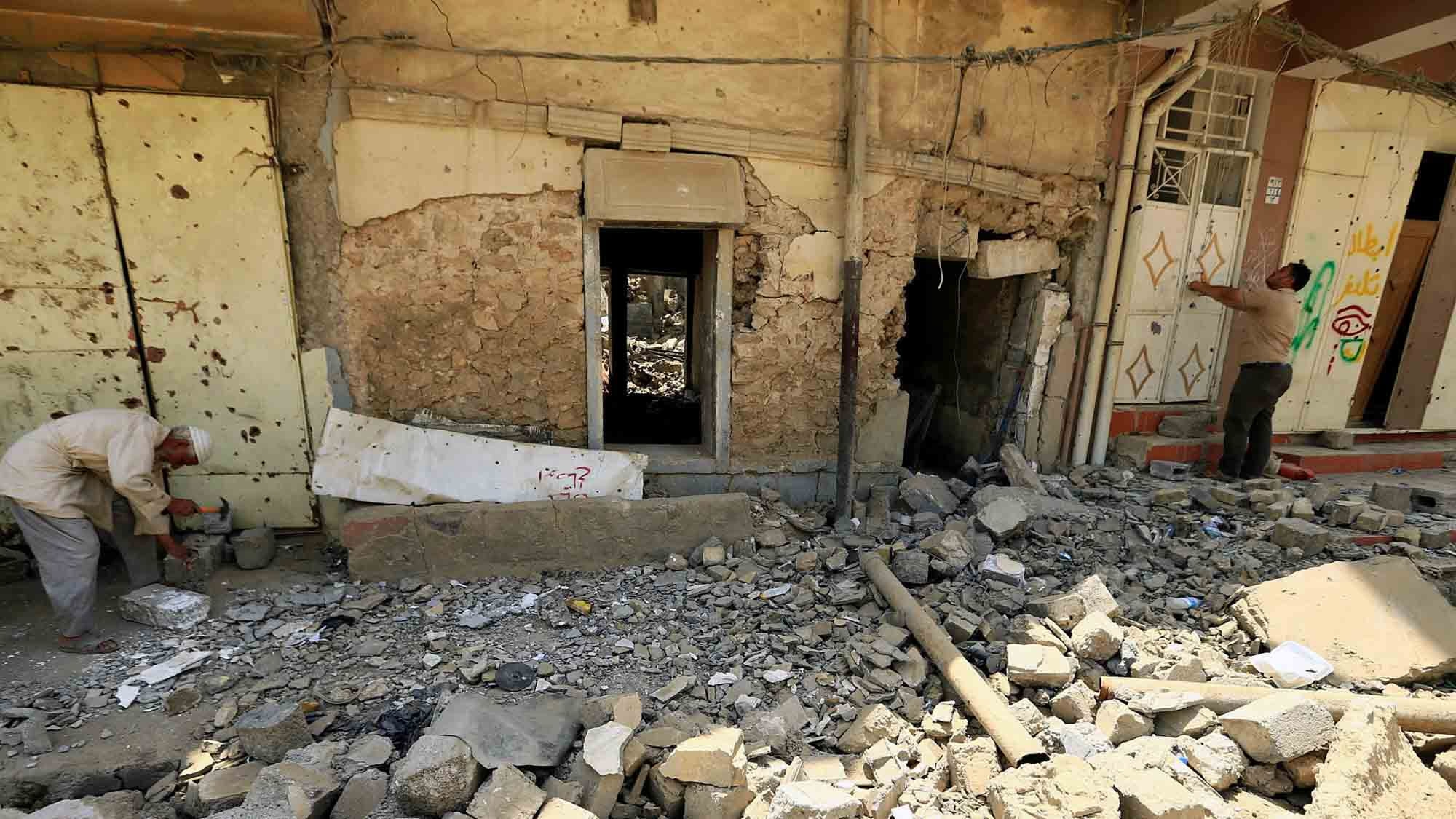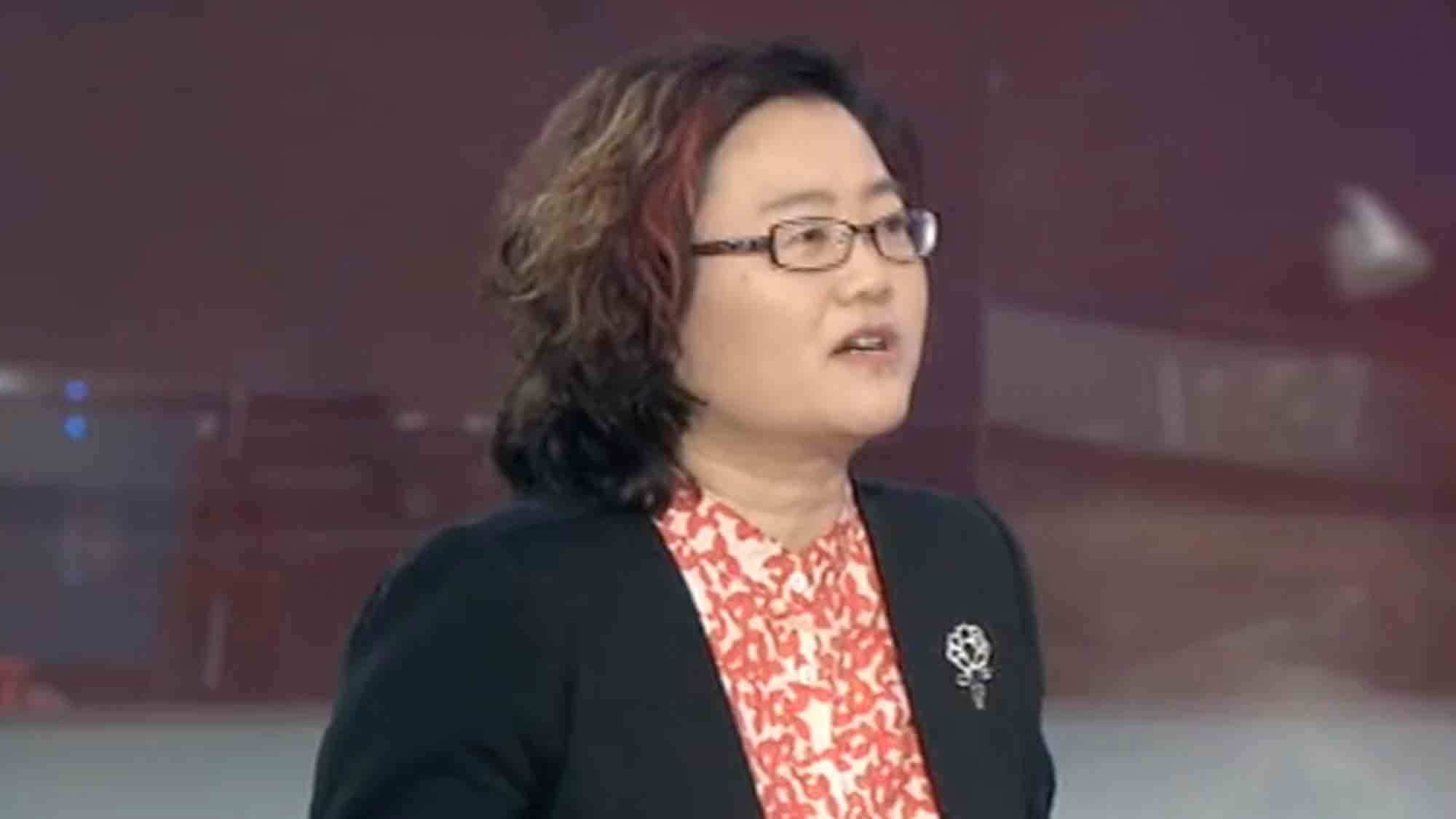As part of a three-day conference, representatives from Kuwait, Iraq, the United Nations, the EU and the World Bank are gathering in Kuwait to discuss efforts to raise 88.2 billion US dollars for the reconstruction of a post-war Iraq.
Though a little less than the 100 billion US dollars Iraqi Prime Minister Haider al-Abadi said was needed at the World Economic Forum in Davos last month, the number remains a challenge for Iraq to reach.
Goals of the International Conference for Reconstruction of Iraq
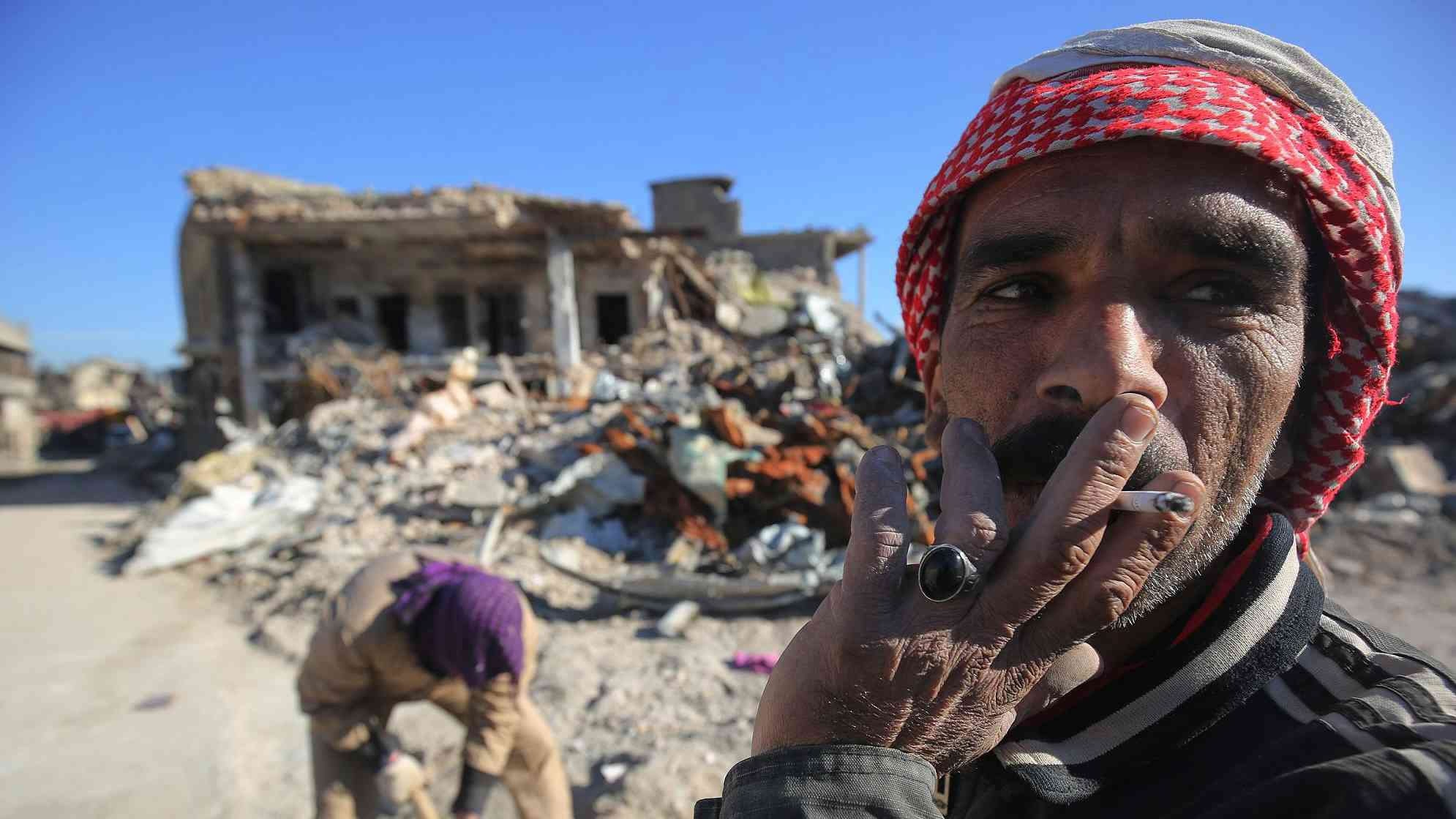
Workers clean up debris from a street in Mosul's Old City, January 8, 2018, six months after Iraqi forces seized the country's second city from Islamic State group jihadists. /VCG Photo
Workers clean up debris from a street in Mosul's Old City, January 8, 2018, six months after Iraqi forces seized the country's second city from Islamic State group jihadists. /VCG Photo
Of the 88.2 billion needed, Qusai Abdelfattah, director general at the planning ministry, said 22 billion of the funds were needed immediately, and the rest for the medium-term.
Raja Rehan Arshad of the World Bank said investment is required across sectors, with more than 17.4 billion dollars needed for housing alone. Nearly 30 billion dollars is needed to restore energy and industrial infrastructure, he said.
The World Health Organization called for investment in hospitals and other medical facilities, pointing to more than 14 hospitals and 170 health facilities destroyed.
Iraq has listed over 150 projects that require investment including roads, airports, hospitals and other facilities in the field of oil refinery.
Read more: Minister: Iraq seeks $88.2 bln for reconstruction
The Reconstruction Fund for Areas Affected by Terroristic Operations (REFATO) will also provide 27 investment opportunities, focused on housing, food and drug production, energy and other areas.
Difficulties lying ahead
Inadequate security
Just last month, two terrorist attacks rocked Baghdad. Twin suicide bomb explosions struck a busy area in downtown Baghdad in January, leaving 27 people killed and 92 others wounded. The other occurred when a suicide bomber detonated his explosive-laden motorcycle at the crowded Adan Square at the entrance of the holy Shiite neighborhood of Kadhmiyah, leaving two people killed and 24 injured, along with the destruction of 11 cars.
Though US Secretary of State Rex Tillerson announced Tuesday that the United States pledges 200 million dollars in support of the anti-IS coalition efforts in Syria, the ongoing terrorist attacks show that the fight against terrorism is far from over.
Pervasive corruption
With the title of the world's tenth most corrupt country according to Transparency International's 2016 Corruption Perceptions Index, investors may be scrupulous in putting money into Iraq.
But Erfan Ali, Iraq representative of the UN Human Settlements Programme said companies and businessmen will have access to a "reconstruction data platform to ensure accountability and transparency."
Insufficient funding
A week earlier US and Western officials said that the United States, the single largest donor to address the Iraqi crisis, does not plan to contribute any money at the conference in Kuwait to fund Iraq’s reconstruction drive, "We are not planning to announce anything," a US official said to Reuters.
"United States should play a bigger responsibility for rebuilding Iraq.......so of course they have no way to escape from this responsibility," He Wenping, research fellow of the Institute of West Asian and Africa Studies, Cass told CGTN.
She also stressed that US' encouragement of private-sector investment and counting on Iraq’s Gulf neighbors to get in is not a responsible choice.
Current reconstruction conditions
Iraqi Prime Minister Haider al-Abadi on December 9 last year declared that "our (Iraqi) forces are in complete control of the Iraqi-Syrian border and I therefore announce the end of the war against Daesh.”
Taking Mosul for instance, as the Iraq's second-largest city and the terrorists’ main urban stronghold in the conflict-ridden Arab country, the reconstruction work in Mosul is very slow, journalists from Reference News visited here half a year later after the liberation of Mosul, but saw the old town still in ruins.
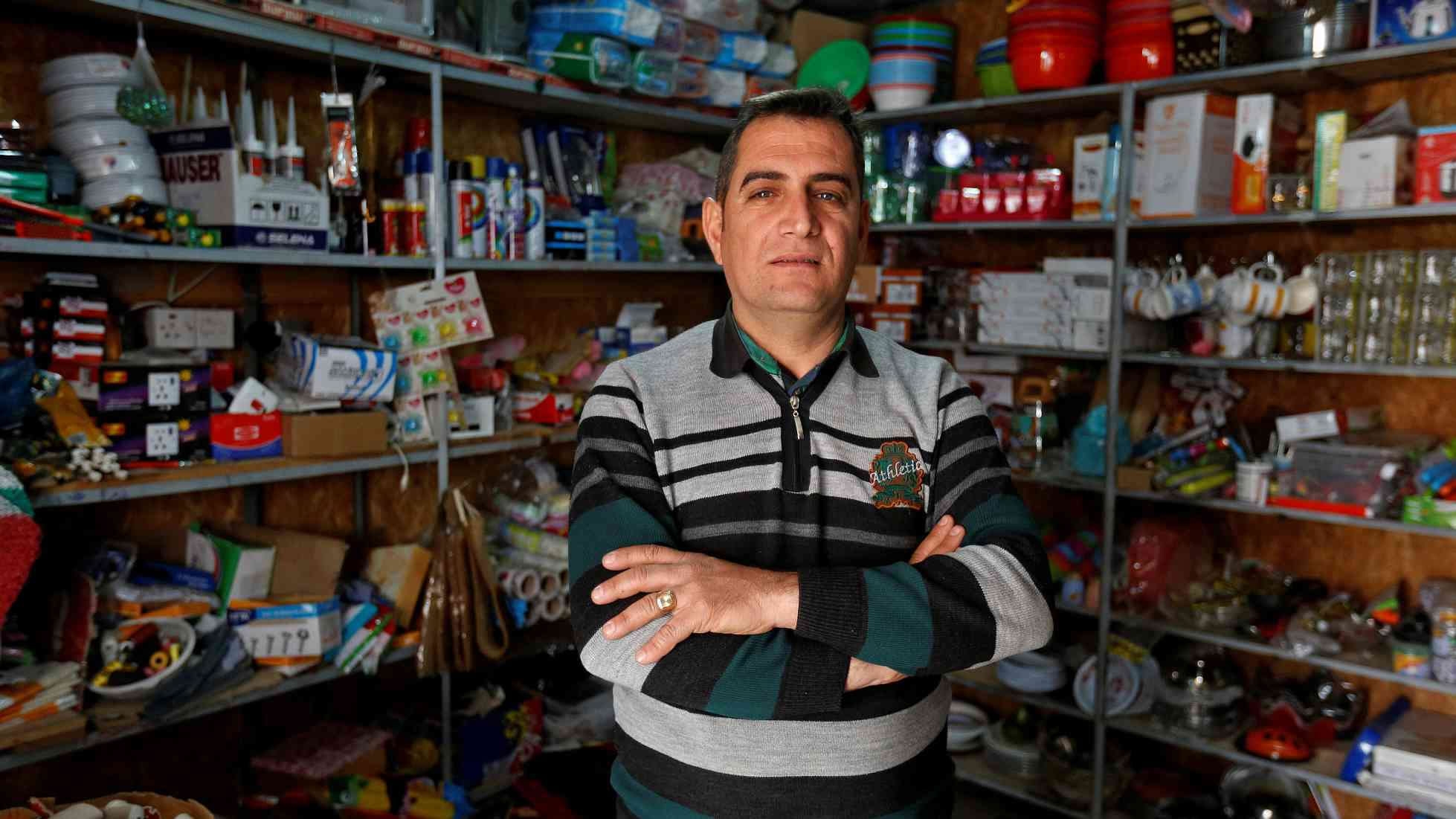
Nashwan Yousef, an Iraqi Christian displaced from Qaraqosh, who fled the Islamic State with his family after occupied their village in 2014, poses for a photograph at his shop in Ashti 2 camp in Erbil, Iraq, February 12, 2017. /VCG Photo
Nashwan Yousef, an Iraqi Christian displaced from Qaraqosh, who fled the Islamic State with his family after occupied their village in 2014, poses for a photograph at his shop in Ashti 2 camp in Erbil, Iraq, February 12, 2017. /VCG Photo
Dr. Mustafa Mohammed Amin al-Hiti, Head of the Reconstruction Fund for Areas Affected by Terroristic Operations (REFATO), said that since 2014, the war against the extremist ISIL group has brought serious disaster to Iraq, in an interview to Xinhua News Agency.
"About 138,000 houses were damaged in the war, half of which were completely destroyed. At present, about 2.5 million people are still homeless, most of them are unable to return home because their homes are destroyed and they have no sources of income," Al-Hiti said.
He stressed that the reconstruction project is mainly focused on the city's water supply, power supply, road and bridge repair and other infrastructure services. Large-scale infrastructure projects, such as airports, hospitals and schools have not begun, due to the war and the downturn in international oil prices.
The United Nations Children's Fund said in a statement reported on Sunday that half of the schools across Iraq need repairs and more than three million children have had their education interrupted.
The International Organization for Migration said that by the end of 2017, more than 3.2 million Iraqis had returned home, but 2.6 million remain displaced.

